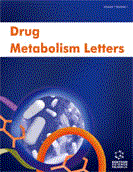Abstract
The in vitro and in vivo preclinical ADME properties of 10 clinically late stage or marketed covalent inhibitors were evaluated in order to define advancement criteria for discovery of future drugs in this arena.
Our studies revealed the following: After incubating with S9 fractions for 30 minutes, the rat and human in vitro stability for these compounds ranged from 1% to 100%. The blood stability ranged from 30% to 100%. There was a broad range of CYP inhibition with prevalence for time-dependent inhibition of at least one enzyme. The Caco-2 permeability (A→B) ranged from negligible (0.6 x 10-6 cm/s) to highly permeable (31 x 10-6 cm/s) and the efflux ratio also varied widely (0.2-30). Most of the compounds were highly protein bound in both rat and human with binding ≥ 90%. Rat plasma clearance for the 10 compounds ranged from slow (11 mL/min/kg) to very rapid (350 mL/min/kg). The Vss ranged from low (0.67 L/kg) to very high (115 L/kg). MRT’s also ranged from short (0.5 hr) to long (7.4 hr). The oral exposures also showed a very broad range with Cmax’s ranging from 0.01-77 μM and exposure levels ranging from 0.03-106 μM.hr.
In conclusion, the wide range in in vitro and in vivo ADME data makes these particular ADME assays non-discriminatory in the selection of promising compounds. In our opinion, non-traditional assays such as target mass modification, target confirmation by amino acid sequencing, cellular target occupancy, and target turnover rate data in combination with the pharmacokinetic profiles are the critical considerations for progression of irreversible compounds in early discovery.
Biography: Mehran Moghaddam, PhD, is the head of Discovery DMPK at Celgene, a global biopharmaceutical company with products in oncology and immune-inflammatory related diseases. He has 18 years of industrial experience with DuPont, Pfizer, and Celgene. His expertise includes animal experimentation, pharmacokinetics, metabolism, metabolite/catabolite identification, and bioanalysis of small and macro-molecules.
Keywords: ADME, covalent, discovery, irreversible, mass-modification, pharmacokinetics, screening.
 199
199














